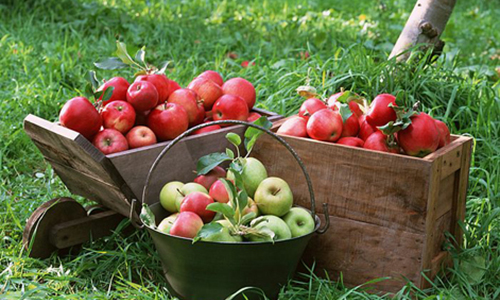Use EWG’s Shopper’s Guide to Pesticides™ to reduce your exposures as much as possible, but eating conventionally-grown produce is far better than not eating fruits and vegetables at all. The Shopper’s Guide to Pesticides in Produce™ will help you determine which fruits and vegetables have the most pesticide residues and are the most important to buy organic. You can lower your pesticide intake by avoiding the 12 most contaminated fruits and vegetables and choosing the least contaminated produce.
The Dirty Dozen for 2013
| Apples | Nectarines (imported) |
| Celery | Peaches |
| Cherry Tomatoes | Potatoes |
| Cucumbers | Spinach |
| Grapes | Strawberries |
| Hot Peppers | Sweet Bell Peppers |
Note: Domestically-grown summer squash and leafy greens, specifically kale and collards, did not meet traditional Dirty Dozen™ criteria but were commonly contaminated with pesticides exceptionally toxic to the nervous system.
The Clean Fifteen for 2013
| Asparagus | Grapefruit | Papayas |
| Avocados | Kiwi | Pineapples |
| Cabbage | Mangos | Sweet Corn |
| Cantaloupe | Mushrooms | Sweet Peas (frozen) |
| Eggplant | Onions | Sweet Potatoes |
